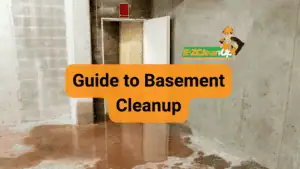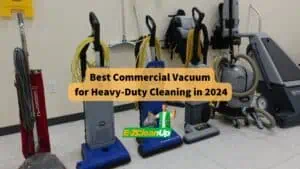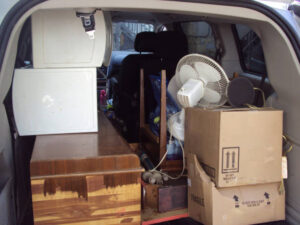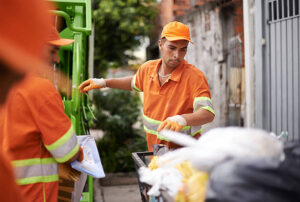Planning a major home cleanout can be exciting, but navigating the maze of HOA restrictions and local regulations can quickly turn your project into a headache. Whether you’re decluttering after years of accumulation, preparing for a move, or tackling a renovation cleanup, understanding the rules that govern waste disposal in your community is essential for a smooth, penalty-free experience.
Understanding HOA Cleanout Restrictions
If you’re considering renting a dumpster for a home cleanout or remodeling project, it’s important to check your HOA’s policies first. Many HOAs specify where a dumpster can be placed—often requiring it to be on your driveway rather than on the street or lawn. It’s common for HOAs to set strict timeframes on how long a dumpster can stay on your property: often 7 to 10 days.
Common HOA Dumpster Rules You Need to Know
Placement Requirements:
- Dumpsters must often be placed on your driveway rather than on the street or lawn
- Regular inspection of the dumpster and surrounding area for cleanliness is required, with prompt removal arranged as soon as it is no longer needed
Size Limitations:
HOAs may limit the size of dumpsters you can rent. For example, you might be allowed a 10-yard dumpster for small cleanouts but prohibited from renting a 40-yard dumpster due to space or weight concerns.
Time Restrictions:
Most HOAs set strict timeframes on how long a dumpster can stay on your property: often 7 to 10 days.
Navigating Local Ordinances and Permits
Beyond HOA rules, local municipalities have their own set of regulations that can significantly impact your cleanout project. Local ordinances can vary significantly from one city to another, even within the same county. This is why it’s important to check with your specific municipality to see if you need a dumpster permit.
When You Need Permits for Your Cleanout
Street Placement:
It’s common to need a permit for a dumpster on the street. You’ll also typically need a dumpster permit to keep the bin on other public property, like sidewalks and alleys.
Private Property Considerations:
Placing a dumpster on private property, such as your driveway, usually involves fewer legal restrictions. However, it’s still wise to check with local authorities, as some areas require permits for dumpsters, even on private property, especially if the dumpster’s size exceeds certain dimensions.
Permit Costs:
The cost of a dumpster permit typically falls between $10 and $100, though in major cities it can run closer to $150.
Step-by-Step Planning Guide for Your Cleanout
Step 1: Research Your HOA Guidelines
Start by reviewing your HOA’s CC&Rs (Covenants, Conditions & Restrictions) and contacting your HOA board or management company. If you find yourself questioning whether your HOA has the authority to regulate a certain item or action, check its governing documents and bylaws, as well as your state and local laws.
Step 2: Contact Local Authorities
Check your local government’s website and contact the correct city department. Then submit your permit application and wait for approval while you prepare for your dumpster delivery.
Step 3: Plan Your Timeline
Local regulations vary on the maximum time you can keep a dumpster in your driveway, but many cities put the cap at 30 days per calendar year. Most typical dumpster rental periods are seven to 10 days — well within most city limits.
Step 4: Consider Your Neighbors
Inform adjacent neighbors about dumpster placement plans and duration to minimize disruptions and address any concerns proactively. Respond promptly to any complaints or feedback from neighbors regarding dumpster placement or usage.
What You Can and Can’t Dispose Of
Understanding disposal restrictions is crucial for avoiding additional fees and staying compliant with local regulations.
Generally Accepted Items:
- Household junk and debris from construction or home improvement projects are typically allowed in a dumpster. This includes remodeling debris such as drywall, metal, lumber, flooring, cabinetry and siding, as well as general household items from decluttering projects.
Commonly Prohibited Items:
- All hazardous materials are prohibited from going into the dumpster. This includes materials that can be toxic or pose a safety hazard, such as wet paint, asbestos, sealed tanks, or flammables.
- Most HOAs, local regulations, and dumpster rental providers prohibit certain items from being thrown away in a dumpster. Always check with your HOA and dumpster provider about restricted items to avoid penalties or additional fees.
Pro Tips for a Smooth Cleanout Experience
- Start Early: Permits and regulations significantly influence construction timelines, affecting every phase from planning through project closeout. Securing permits often involves navigating complex requirements, which can extend timelines if not managed proactively.
- Choose the Right Size: A dumpster that’s too large or placed incorrectly could violate HOA rules. Consider getting help to right-size your dumpster.
- Follow Both Sets of Rules: Beyond your HOA’s rules, make sure you’re in line with city requirements. Failing to do so could double your headaches with both HOA fines and municipal penalties.
- Document Everything: Keep records of permits, HOA approvals, and communications with neighbors to protect yourself from potential disputes.
- Plan for Contingencies: Weather, permit delays, or unexpected HOA requirements can extend your project timeline, so build in extra time.
Making Your Cleanout Project Successful
Whether you’re doing spring cleaning, preparing for a move, or clearing out post-renovation debris, knowing your community’s rules ahead of time saves stress. By working with professionals who understand HOA bulk trash and junk pickup regulations, you can stay organized, compliant, and stress-free.
Planning your cleanout around HOA and local rules doesn’t have to be overwhelming. By taking the time to research requirements, obtain necessary permits, and communicate with stakeholders early in the process, you can ensure your project runs smoothly from start to finish. Remember, a little planning upfront can save you significant time, money, and stress down the road.













